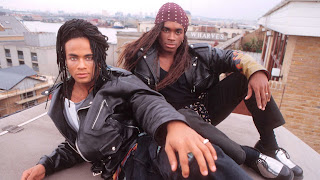The bottom of this review contains spoilers and will be accurately marked so you can stop if you haven’t watched The Midnight Sky.
It took me two days to watch The Midnight Sky, not because I
hated it but because I was watching it with my granddaughter and ten minutes in
she said, “Okay, please, enough.”
The ease in which I switched the movie told me it didn’t
have my interest either. Yet, I was determined to watch the newly acclaimed
movie from Netflix. Directed by George Clooney.
The story was good, it was really good, but it could have
been great. Maybe I’ll rewatch it.
The story focuses on two sets. One on the spaceship Aether,
one on earth.
Clooney plays a scientist and he is believable. Unlike the
movie Geo Storm where Gerard Butler played a scientist and that just pushed my
suspension of belief way too far.
In The Midnight Sky an unknown cataclysmic has rendered
earth uninhabitable. Clooney, a terminally ill man stays in the arctic where
the air is still safe to warn in coming spacecraft not to land. Decades earlier
his character discovered K-23 an earth like and possibly livable planet.
Story two is the Aether and the crew. They are returning
from K-23, making their way home to deliver the good news. “Yay! We have a new
place to colonize.” The crew is likeable and a great cast. The tone and look is
a total contrast to earth. They have been gone two years and haven’t a clue
what’s going on.
Clooney is trying to reach them unsuccessfully, he isn’t
real diligent until he discovers a little girl was left behind when everyone
left the arctic. He now has to trek hundreds of miles to a weather station
where he knows the radio works.
As I mentioned the story itself is really good. It mixes
flashbacks of Clooney’s character’s life, pretty early on letting us know he
chooses career over love and at the end of the world regrets it. Maybe ….he
doesn’t care about much, but now .. this girl gets to his heart.
There are tense, anxious action moments but the pacing is
off because of bad editing.
One of the things that make a good film editor isn’t just
the ability to cut scenes together flawlessly, or catch inconsistencies, it is
the ability to know what can go and what must stay.
Just because you spent a ton on a set or it looks beautiful
doesn’t mean it needs to be in there, especially if it creates a really long
sequence and takes away from the tension. Many of beautiful scenes end on the
cutting room floor or rather recycle bin. If it doesn’t move the story, take it
out.
There’s a scene in particular, this is not spoilery, that
they leave the ship to make a repair (You know like every other spaceship
movie) that scene is like 8 minutes too long. It took away from the point. The
runtime of TMS is two hours, I think it could have been tight at One hour
forty.
It has the feel of ‘On the Beach’ only with some hope. I
recommend it if you want a movie you can eat a meal while watching. This one
affords the ability to glance down at your plate without missing anything.
Now … SPOILERS… ending explained.
Through the flashbacks, we learn that Clooney has a child
with the woman he loved, a little girl he never acknowledged. He chooses a career
over love and family and his regrets being alone manifest.
He regrets never meeting the daughter or helping her.
It was pretty obvious from the get go that the little girl,
Iris, wasn’t real. That she was a figment of Clooney’s imagination. Certain
scenes she isn’t there and not on camera while she should be. Where the
filmmakers error is showing the little girls POV when they are outside of a
plane crash. Iris is not real so how is she seeing anything. Clooney is inside
the plane and has no way of ‘imagining’ what she is doing.
BUT ….weaved with the flashbacks, the second you know he has
a daughter, you figure out this imaginary girl is the daughter he never
acknowledged, so he is, in his own way being the guidance he never was.
However he actually is. For real.
Once they make it to the weather station he connects with
the Aether and Sully (Female) communication specialist. He tells her and the
crew about earth and how to solve their problem to get back to space and to
K-23. He is their guidance.
She thanks him and when she finds out his name she praises him.
Tells him how he was the reason she got into NASA, that her mother was his
colleague. And that’s when we learn, her name is Iris and she is his daughter.
Clooney’s character realizes this and gets some resolution.
He wasn’t helping the girl get to the weather station to warn Aether. He was
getting to the weather station to warn his little girl.
I’m pretty good at picking things up and I did not pick up
any clues. But looking back at the progression of Clooney’s story, it was all
there. I’ll need to watch the spaceship scenes again to see if they hinted that
Clooney was her father. They probably did, but unlike the long tedious outside
the spaceship scene, it ended up cut.

